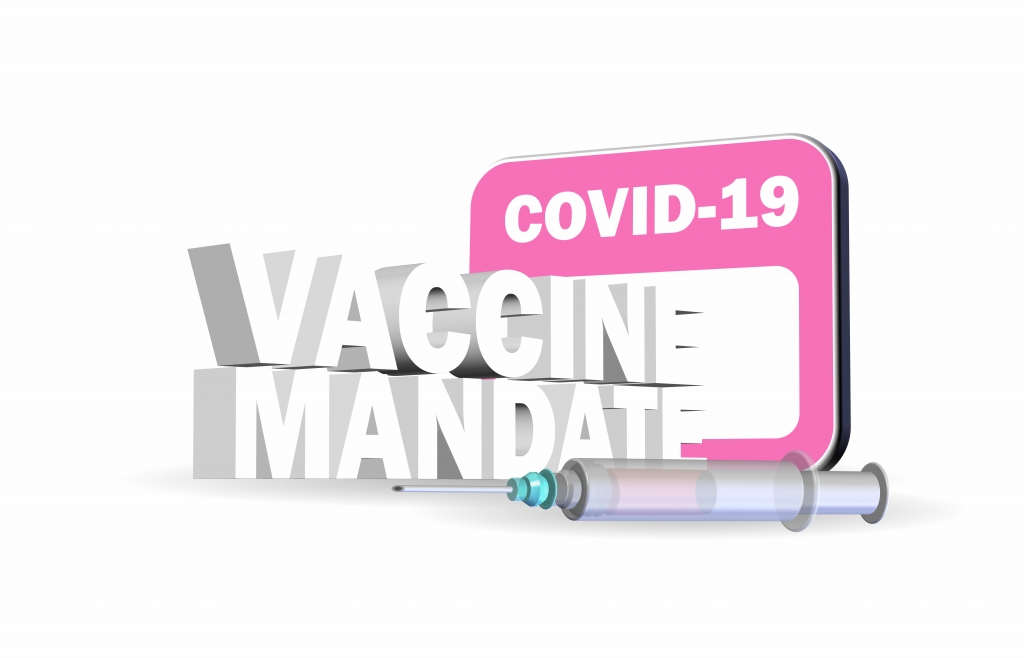
By Cody Weyhofen, Mark Opara, John Neyens, and John Vering
December 15, 2021
Recently, federal courts blocked enforcement of multiple COVID-19 vaccination mandates, including the Occupational Safety and Health Administration’s (“OSHA”) Emergency Temporary Standard and President Biden’s Executive Order 14042 regarding federal contractors and subcontractors (the “Federal Contractor Order”).
The OSHA Emergency Temporary Standard
The OSHA Emergency Temporary Standard (the “ETS”) generally requires employers with at least 100 employees to implement a policy mandating employees to show that they have been fully vaccinated or submit to weekly testing beginning in January 2022.
Fifth Circuit Blocks the ETS
On November 12, 2021, the U.S. Court of Appeals for the Fifth Circuit blocked enforcement of the ETS and ordered OSHA to “take no steps to implement or enforce” the ETS until further court order. Although it was originally unclear whether the Fifth Circuit’s order applied nationwide or only to the states within its jurisdiction (i.e., Texas, Louisiana, and Mississippi), OSHA has suspended all activities related to the implementation and enforcement of the ETS pending future court developments.
The Federal Contractor Order
The Federal Contractor Order requires certain contracts with the federal government to include a clause specifying that “the contractor or subcontractor shall, for the duration of the contract, comply with all guidance for contractor or subcontractor workplace locations published by the Safer Federal Workforce Task Force.” On September 24, 2021, the Safer Federal Workforce Task Force published its much-anticipated guidance, which requires federal contractors, subcontractors, and their respective employees to be fully vaccinated against COVID-19 by January 4, 2022.
Southern District of Georgia Blocks Federal Contractor Order
On December 7, 2021, the U.S. District Court for the Southern District of Georgia issued a preliminary injunction blocking enforcement of the Federal Contractor Order in all fifty states. However, the Southern District of Georgia did not enjoin enforcement of masking and distancing requirements for federal contractors and subcontractors.
Looking Forward
Although the ETS and Federal Contractor Order are not currently being enforced, it is possible that both mandates could be enforced in the future. To the extent allowed under state law, entities subject to the ETS and Federal Contractor Order should consider preparing for future compliance by preparing internal policies and exemption forms, and collecting data regarding their employees’ vaccination status. However, covered entities should be mindful that a growing number of states have enacted or are considering enacting legislation aimed at limiting an employer’s ability to impose vaccine mandates.
For example, under recently enacted Kansas House Bill No. 2001, if an employer implements a vaccination policy, the employer must provide exemptions for employees who submit a written waiver stating that compliance with the policy would “endanger the life or health of the employee or an individual residing with the employee,” or “violate sincerely held religious beliefs of the employee.” Notably, the employer must grant an exemption request based on religious beliefs without inquiring into the sincerity of the request. This means that employers who voluntarily impose vaccine mandates may need to revise their exemption request forms. This statute provides for potential fines of up to $50,000 per violation. Also, the Kansas statute is unclear regarding whether an employer can grant a religious exemption, but also determine that it is unreasonable to accommodate the religious exemption for that employee.
Therefore, employers with at least 100 employees and those with federal contracts or subcontracts are strongly encouraged to follow any developments at the state or federal level and monitor future Seigfreid Bingham Client Alerts providing further information.
This article is general in nature and does not constitute legal advice. Please note that the mandates referenced above present many novel legal questions, and we encourage you to seek legal advice for the application of these and related laws to your specific situation. Please note that legal requirements are changing on a daily basis. Readers with legal questions should consult Cody Weyhofen (Cweyhofen@sb-kc.com), Mark Opara (MOpara@sb-kc.com), John Neyens (Johnn@sb-kc.com), John Vering (JVering@sb-kc.com), or your regular contact at Seigfreid Bingham at (816) 421-4460.
